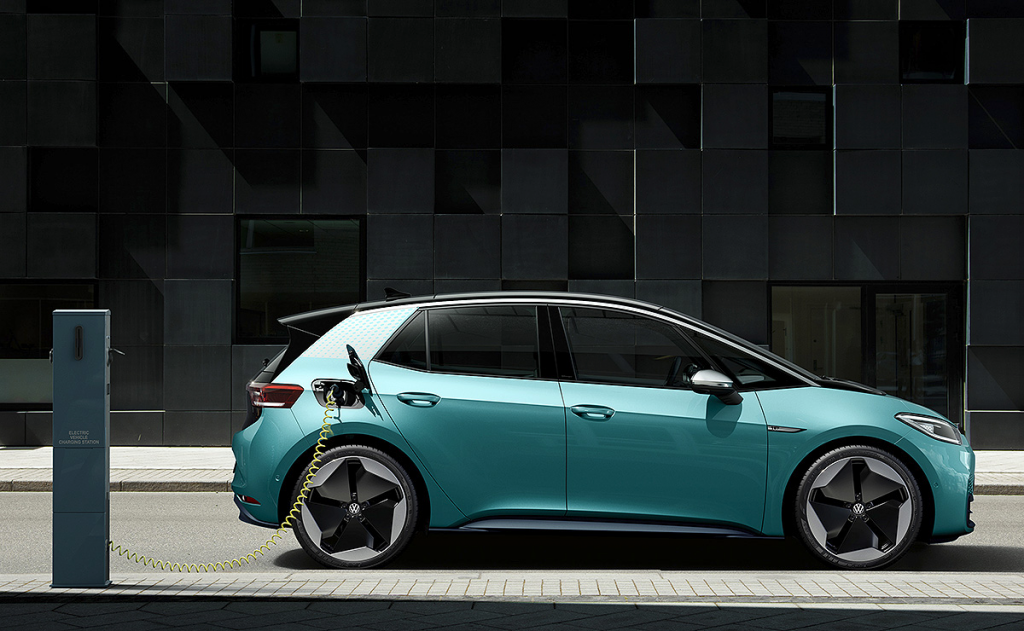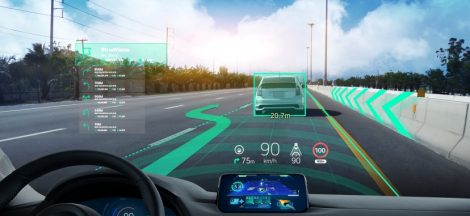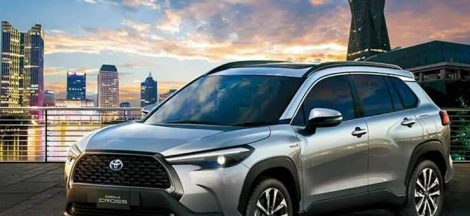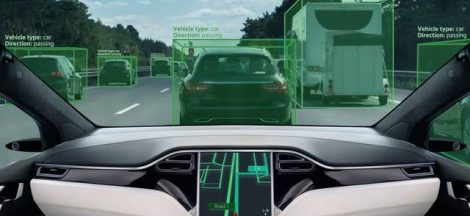The success of Tesla and the growing concern over climate change and global warming has proven that electric cars are inevitably the future of transportation around the world. Automakers around the world have recognized this and have started offering dozens of fully electric models while phasing out the internal combustion engine. Like most technological advances, Pakistan has lagged behind until now. Pakistan’s automotive industry is all set to welcome electric cars after the ECC ratified the electric vehicle policy this week. The new policy laid out the information needed by manufacturers to justify launching their EVs models in Pakistan. While the large scale production and and adoption of electric cars in the country is still some time away, here are 5 battery electric vehicles you can go out and buy right now or in the near future.
Audi e-tron
The Audi e-tron is a fully electric, mid-size luxury crossover SUV officially launched in Pakistan by Audi Pakistan in March 2020. The e-tron is the first electric vehicle introduced in the Pakistani market by a big name car brand after the National Electric Vehicle Policy was announced in January. The car is also Audi’s first foray into the EV market and features a 71 kWh lithium ion battery in the base 50 quattro model (only model currently being offered), giving it a claimed range of around 300 km (WLTP range of 276 km to 336 km) on a single charge. The e-tron uses a dual motor setup with a motor on each axle, giving it four-wheel drive capabilities. The two motors combined produce a total of 402 horsepower and 664 newton-meters of torque. A 22 kW charging system comes standard with the car which is installed in the user’s home and can bring the car to full charge in about 5-6 hours. A portable 11 kW charger is also included in the car and can be plugged into any AC power socket to charge the car on the go. The car accelerates from 0-100 km/h in 5.7 seconds, and has an electronically limited top speed of 200 km/h. The car comes equipped plenty of safety features including 13 airbags, ABS, and stability control. Audi Pakistan also offers a sportback version of the e-tron. The Audi e-tron has a booking price of Rs. 16,580,000.
MG ZS EV
MG is a new entrant in the Pakistani auto market and has launched 3 models in the country this year, which include the HS, ZS 1.5 and ZS EV SUVs. The company has already received 10,000 orders for the petrol powered HS, and will start booking for the ZS 1.5 and ZS EV very soon. The ZS EV is an electric version of the ZS subcompact crossover SUV. It features a 44.5 kWh battery and a single motor powering the front wheels. The car produces 105 kW and 350 Nm of torque, and has a claimed range of 262 km. The car can be fast charged with a CCS (Combined Charging System) public charger at 80 kW DC power or can be charged at home using a Type 2 7.4 kW AC charger. The car comes with features such as Daytime Running Lights, parking sensors, and an in-car infotainment system with Apple CarPlay and Android Auto. MG plans to manufacture the ZS EV in Pakistan, and CBU units of the car are already being tested on the road. MG hasn’t revealed the price of the ZS EV yet, but it is expected to cost around Rs. 6 million.
Zotye Cloud 100
The Zotye Z100 is a Chinese subcompact hatchback made by Zotye Auto and imported into Pakistan by Topsun Motors. The car is a close approximation of the Suzuki Alto, and currently Topsun Motors are importing the petrol version of the Z100 to Pakistan. Topsun Motors, in an interview with PakWheels, said that it planned to introduce the all electric Cloud 100 as soon as the electric vehicle policy was approved by the government. A representative of the company said that the company was eager to introduce the electric variant and had models ready to be imported from China. That seems imminent now that the ECC has approved the policy. The Zotye Cloud 100 is expected to come with an 27 kW motor driving the front wheels and producing 140 Nm of torque. The car has a 17.76 kWh battery, giving it a claimed range of 155km on a single charge. Charging the car will take 6-8 hours using a standard 220V power supply, with a fast charging mode that can bring the car to 80% charge in 1 hour using 380V. The car is expected to cost around Rs. 1.8 million when it launches.
BMW iX
The BMW iX is the newest car on this list, having just made it’s debut in November 2020. The iX is one of the newest cars in the German luxury car manufacture’s lineup, and is part of the BMW i sub brand. The car features a 100 kWh battery, which gives it a claimed 600 km of range. It also has four wheel drive with a motor on each axle, similar to the Audi e-tron. The car produces 500 hp (370 kW) taking it from 0 to 100 km/h in 5 seconds. BMW offers two ways to charge the iX with either a 200 kW DC fast charger or a secondary 11 kW AC charger. The iX can be charged from 10% to 80% in 40 minutes using the fast charger, and takes 11 hours to fully charge using the 11 kW AC charger. The iX is the first luxury car to come with 5G connectivity and comes fully loaded with technology features such as BMW’s iDrive and driver aid suite. The car has a host of sensors and cameras, which will theoretically give the car Level 3 autonomous driving capability. BMW has yet to announce pricing for the iX.
Several more cars are expected to join the ones mentioned on this list in the next few months with agreements signed between Pakistani companies and foreign EV manufacturers to bring their cars to the country. Rahmat Group has signed an agreement with Chinese EV manufacturer BYD to launch cars and produce electric batteries in Pakistan. Similarly, Malaysian manufacturer Proton has partnered with Al Haj Automotive to import its electric cars to Pakistan. Nissan, Hyundai, and Renault have also shown interest in bringing over electric models to the country. In light of these developments, it’s safe to say that the electric car market in Pakistan is set to boom in the coming years.









 Gwadar officially gets fiber optic connectivity courtesy of PTCL
Gwadar officially gets fiber optic connectivity courtesy of PTCL